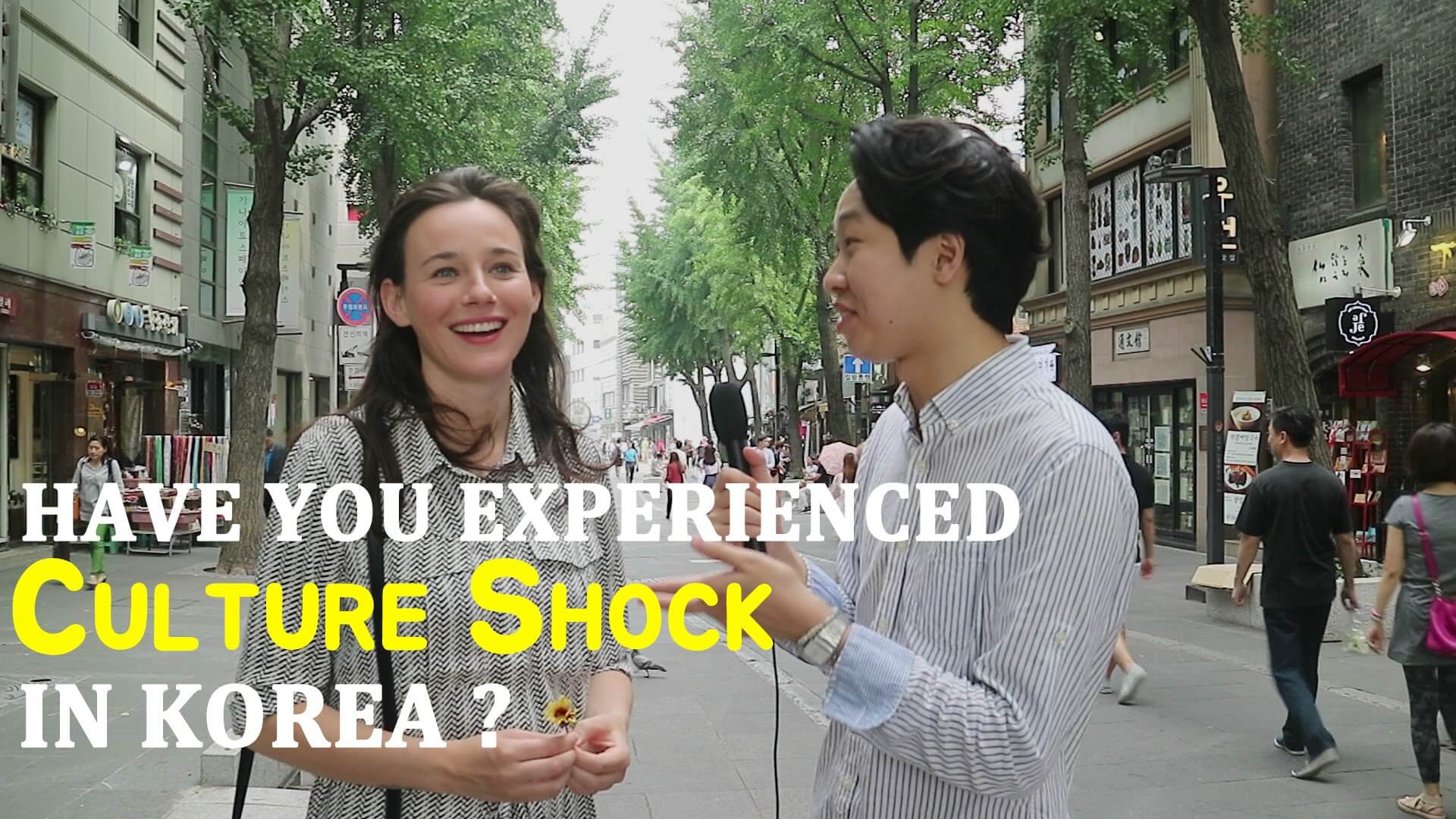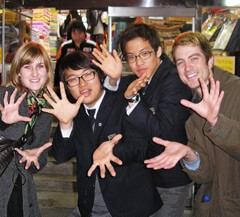Living in Korea: Strategies for Coping with Culture Shock in Korea
Little has been written about coping with culture shock and the expat lifestyle, so we asked therapist Jennifer Valentine to share some strategies for maintaining a healthy mindset and positive attitude while in Korea.
 Originally from the US, Jennifer has made “homes” in Korea, Singapore, and the UK, and is currently VP at Adaptable Human Solutions in Seoul, where she works with a team of international therapists to help expats (and locals) grow and develop in healthy ways. When she isn’t thinking too much, she enjoys many hobbies, like watching Premier League Football and listening to Motown tunes…
Originally from the US, Jennifer has made “homes” in Korea, Singapore, and the UK, and is currently VP at Adaptable Human Solutions in Seoul, where she works with a team of international therapists to help expats (and locals) grow and develop in healthy ways. When she isn’t thinking too much, she enjoys many hobbies, like watching Premier League Football and listening to Motown tunes…
Latest reports indicate that there are currently 50.5 million expats worldwide (and this number is expected to continue to grow). Whether Korea is your first international port-of-call, or your passport is already fat with stamps, you are in for a wonderful Korean adventure!
So much is written about maintaining your physical health when going abroad (e.g. getting your vaccinations, taking your vitamins, etc.) but far fewer articles provide advice on the concrete coping strategies necessary to dealing with the culture shock and stresses of living abroad. Here are some helpful tips – from my own experience and those of my colleagues – on keeping your cool in The Land of the Morning Calm.
1. Be on Your Best Behavior
Remember that you are a “guest” in Korea: One day you will probably leave, and Korea will remain behind.

While it is important to settle in and learn the ropes of daily living, you are unlikely as an outsider to understand or agree with everything local, and this is a huge contributor to culture shock. Be okay with the differences and always be mindful of your temporary status. Remaining on your best behavior will assure the locals of your respect for their culture- and will also remind you to temper your frustrations when they surface.
2. Remain Curious About the World Around You
Don’t give in to culture shock! You didn’t come all this way to not experience Korean culture and the warm Korean people! Don’t isolate yourself in your apartment, but get out and connect with both the locals and other curious expats.
When invited, go! And don’t be afraid to do the inviting – you’ll kick yourself later for not making the most of your time. As humans, we need relationships to help us maintain a healthy mindset and worldview – isolation can be a tempting strategy when times get tough, but it rarely works in the long run.
3. Find Things to Write Home About
In starting your new adventure in Korea, don’t completely forget about those back home. Friends and family may not fully understand why you came to Korea in the first place, and they definitely won’t be able to appreciate what your day-to-day living is really like but, like Korea, they too are a part of you and your journey, so don’t neglect those valid parts.

Keeping connections at home will also make your eventual return far easier.
4. There will be Bad Days
Be prepared for simple tasks that, back home, you could do in a matter of minutes with your eyes shut suddenly become impossible. Also, know that when those days occur you will be left feeling stupid, defeated, or worse.
Bad days abroad can feel so much more intense because of our lack of a natural framework for the new culture and have, no doubt more than once, ended an otherwise great adventure. Remind yourself that bad days happen to everyone, everywhere (regardless of geography), and then starting looking for solutions to push past the troubles at hand and focusing on the reasons you came in the first place.
5. Find Ways to Take Care of You
Even though many people come to Korea in order to pay back student loans or to build up personal savings for whatever dream they want to pursue next, many find taking care of themselves in Korea more financially viable than they might have imagined.
Often the cost of glasses, dental work, medical treatments, and even surgeries (especially elective ones) can be far cheaper than in your home country. Many Expats budget in regular massage, acupuncture, counseling, yoga, or some other endeavor, like travel, that helps them to feel healthier, de-stress, and find their center after a hectic schedule (and unnerving taxi journeys).
Remember to keep this strategy high on your list: Your personal wellness is imperative for a successful life in Korea.
6. Check Your Ideas of What is “Normal” at the Door
 As an Expat, you’ve already decided to stretch your definition of “normal” and, as such, should expect to be challenged often and surprised daily about what “normal” really is. When your life starts feeling anything but normal, know that that confused feeling is absolutely normal for an Expat and is one of the many trade-offs you agreed to when deciding to stray from your home country.
As an Expat, you’ve already decided to stretch your definition of “normal” and, as such, should expect to be challenged often and surprised daily about what “normal” really is. When your life starts feeling anything but normal, know that that confused feeling is absolutely normal for an Expat and is one of the many trade-offs you agreed to when deciding to stray from your home country.
If needed, re-familiarize yourself with the Expat Life Cycle, so that you aren’t surprised as some of the common phases set in. Being able to recognize and name not just the external struggles, but also the internal ones, will help you feel grounded when some of your very basic assumptions about right and wrong, good and bad, are challenged.
Even if all your best efforts and preparations leave you needing additional support in Korea to keep your cool, know that there are resources available to you. The Expat Lounge is just one of many social networks and professional services that hold a plethora of wisdom you can tap into to overcome your culture shock. You need only be resourceful enough to find these tools and courageous enough to ask for a little help when you need it.
Luckily for you, Expats are naturally resourceful and courageous people!
Do you have questions? Comments? Leave them in the comment box below. If you’re looking for someone to talk to to help you with your transition, you can get in touch with Adaptable Human Solutions’ Korean office, here. For more information on preparing to move to Korea, check out our “Prepping for Korea” section. If you’re already in Korea and are looking for more advice, our “Life in Korea” section is where you should go.